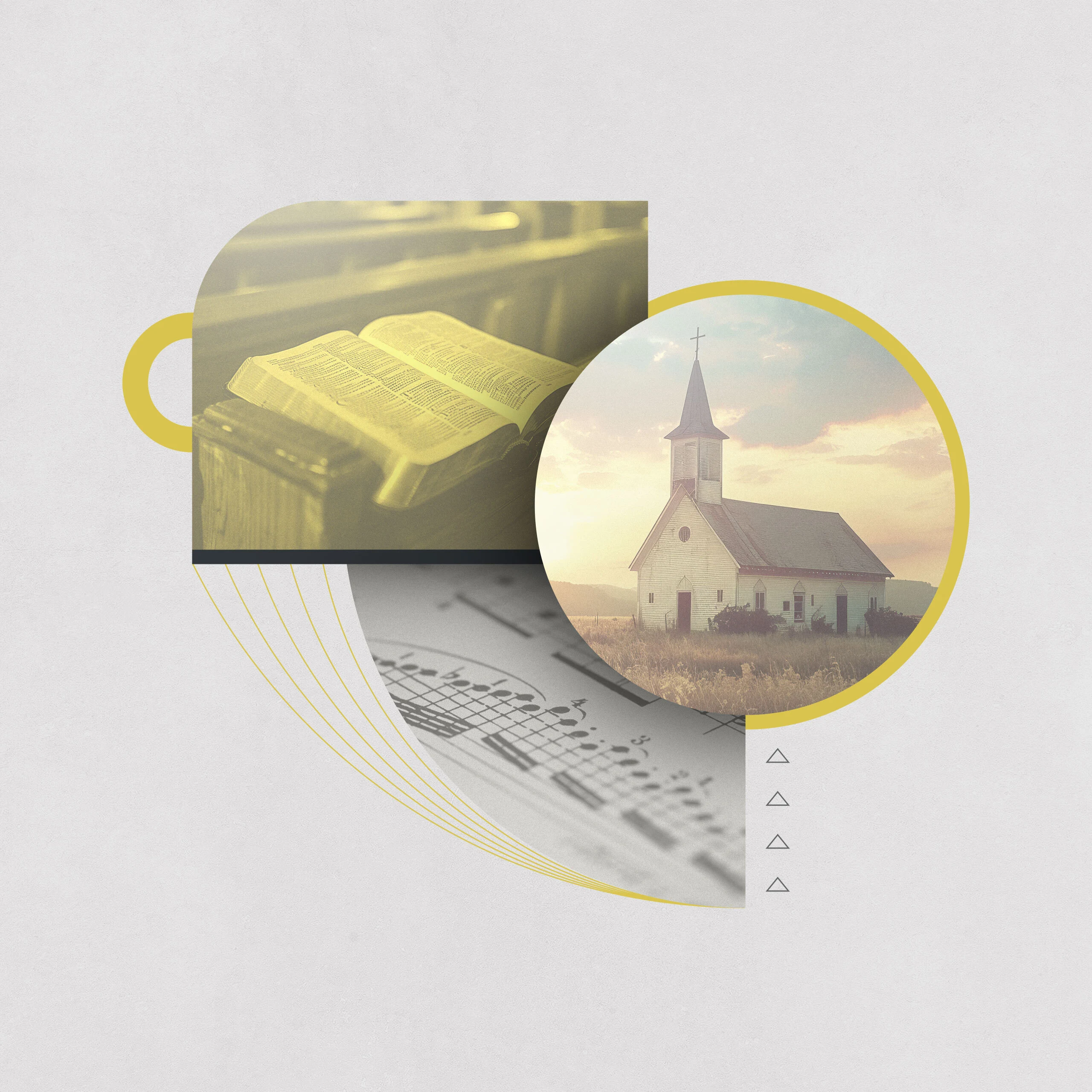What Is a Confession of Sin?

While attending a Reformed congregation’s worship service, the minister may lead you in a confession of sin. He may read God’s law beforehand and pray or state forgiveness through Christ’s blood. What does this confession of sin mean? What is this practice’s origin? How might you participate in it more faithfully?
The Meaning of the Confession of Sin
First John 1:9 says, “If we confess our sins, he is faithful and just to forgive us our sins and to cleanse us from all unrighteousness.” John uses a word for “confess” here that means “to say the same thing as.” Confessing our sins means agreeing with how the Lord describes our sin biblically.
In corporate worship, the confession of sin is a defined time in the service when the minister leads the body of Christ in acknowledging their sins. He then prays that they will receive the Lord’s mercy provided in Christ.
The Origin of the Confession of Sin
In the Old Testament tabernacle and temple, the Lord commanded that the courtyard door face eastward (Ex. 27:13). This direction was chosen because Adam and Eve were driven east out of the garden after their fall into sin (Gen. 3:24). This doorway was a gracious call to Israel to return to God.
The first item worshipers saw as they entered was the altar. Upon entering, worshipers halted, laid their hands on the sacrificial animal, and confessed their sins as the priest offered it to the holy God. This practice reminded them that “without the shedding of blood there is no forgiveness of sins” (Heb. 9:22; see also Lev. 17:11).
Hebrews 9:10–22 references these offerings to show that the animals had no true cleansing power. In comparison, we read, “How much more will the blood of Christ, who through the eternal Spirit offered himself without blemish to God, purify our conscience from dead works to serve the living God” (Heb. 9:14).
To reflect this need for Christ’s blood in coming to God, many Reformed liturgies have the confession of sin near the beginning of corporate worship. John Calvin had the Swiss congregations of Geneva and Strasbourg begin worship with the invocation:
Our help is in the name of the LORD,
who made heaven and earth. Amen. (Ps. 124:8)
This was followed by a public confession of sin. As Calvin said,
Indeed, in all well-ordered churches, in observance of a useful custom, the minister, each Lord’s Day, frames a formula of confession in his own name and that of the people, in which he makes a common confession of iniquity, and supplicates pardon from the Lord. (Institutes 3.4.11)
Through Calvin and others’ influence, this practice spread. The Westminster Directory of Public Worship said that services should begin by “acknowledging the incomprehensible greatness and majesty of the Lord, (in whose presence they do then in a special manner appear,) and their own vileness and unworthiness to approach so near him.” The directory then described specifically the many ways sin should be acknowledged. As spiritual heirs, this Reformed practice has come down to us.
The confession of sin is a defined time in the service when the minister leads the body of Christ in acknowledging their sins.
The Practice of the Confession of Sin
Here are three applications toward participating more faithfully in confessing our sin.
- Acknowledge the greatness of our sin.
Often, we think only of the act of sin. Yet the greater matter is against whom we have sinned.
If you drew a funny moustache on a portrait I painted, the offense would be slight. Why? Because I am a terrible artist. But if you went to the Louvre and somehow managed to draw that same moustache on Da Vinci’s Mona Lisa, you would be in big trouble. The consequence of the same act is more serious, for you would have desecrated a masterpiece.
Likewise, sinning against the Master of all creation is grave. When David confessed his sin in committing adultery with Bathsheba and murdering her husband—two persons created in God’s image—he said, “Against you, you only, have I sinned” (Ps. 51:4).
- Grieve over the corporate nature of our sins.
In the Lord’s Prayer, we pray, “Forgive us our debts” (Matt. 6:12, emphasis added). We are united by Christ’s Spirit with others in the church. Our sin impacts the congregation, so we must confess our sins together.
Paul said, “Do you not know that you are God’s temple and that God’s Spirit dwells in you?” (1 Cor. 3:16). The “you” is plural in this verse. Sins in Christ’s body are offensive in nature, for the holy God dwells there. The church is like God’s art museum, and the “paint” that beautifies us is Christ’s blood (Heb. 10:28–31). As Thomas Watson said: “The sins of the wicked anger God. The sins of his own people grieve him.”
- Express true remorse over our sin.
The Bible records many instances of Israel confessing their sins, such as when the Lord sent fiery serpents after Israel complained in the wilderness (Num. 21:7) or when the people returned from captivity to rebuild Jerusalem’s walls (Neh. 9:1–3). As you read these accounts, you hear the remorse of God’s people.
Although your congregation may not be at such a low point, any sin against the Lord should bring true sorrow. Many psalms, often read or sung for the confession of sin, express heartfelt lamentation over our transgressions. This language of confession should be a regular, expected practice of the church. As Martin Luther said, “Therefore, when I admonish you to confession, I am admonishing you to be a Christian.”


